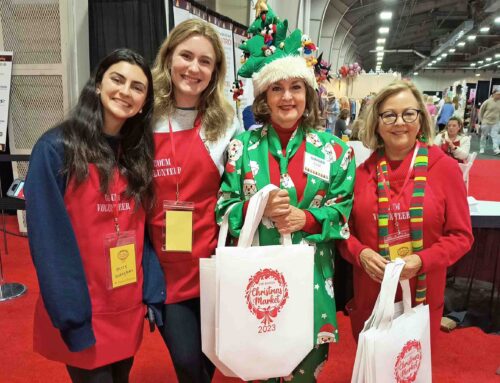Since the fall of communism in Russia, vast changes have taken place throughout the former Soviet Union. Some are good: exposure to Western culture, investment by foreign businesses, some modernization of health care. Some changes, however, are not so good: increased poverty and unemployment and a resulting rise in mental illness and alcoholism.
Largely because of these factors, 20 percent of the children of Russia are housed permanently in orphanages, because their birth parents either chose to abandon or are unable to care for them.
Some of these children have birth defects or mentally disabilities. Many, however, are healthy children with the potential to make a contribution to society. In Russia, however, they will not receive that chance. That’s why the Russian government and Buckner International Services for Children in Dallas teamed up two years ago in a project to aid all children in Russian orphanages and to facilitate U.S. adoption of eligible children.
Kathleen Morris, a pediatric speech therapist and Lake Highlands resident, will travel with a group leaving in late May for a 10-day mission. “Our purpose is twofold: first, to help the children and educate their caregivers, and second, to intervene and optimize the health of children who may be good candidates for adoption.”
Although a few Russians adopt these orphans, for most a foreign adoption is their only chance to lead a normal life — or in many cases, to have a life at all. Explains Morris, “The orphanage system in Russia is very structured: there are baby homes which keep infants through age 3. Then at age 3 the children have to leave the home and the adults and other children they have known all their lives and move on to a facility for three- to eight-year-olds. At about the age of eight they go to their final destination, where they are kept until about the age of 17, when they are released onto the streets – although now, because of overcrowding, some are being released as young as 15.
“These teenagers have no money, no family and no job skills. The girls become prostitutes in order to live. The boys’ options are even more limited. Can you imagine having to live on the streets in Russia during the winter? Many of them freeze to death or die of disease.”
Last year Buckner sent over pediatricians and dentists, with accompanying medical equipment, to St. Petersburg to work with orphans there. This year the focus will be on developmental needs. In addition to Morris, the group will include occupational therapist Carolynn Falk, clinical psychologist Merri Lee Anderson and The Learning Tree preschool director Judy Allen. Morris and Falk are with Lakewood Pediatric Therapy and Anderson is in private practice.
Along with seven interpreters, the team will travel from Moscow to Vladimir, which is three hours away by car, to meet with caregivers and teach them about normal childhood development, warning signs to look for in children, and how to assess educational needs and provide enrichment. They will do hands-on work with children at the facilities, assessing them for learning differences and delays as well as physical delays or abnormalities.
“The most exciting part is that we have been invited to provide workshops and training at a two-day conference for physicians, orphanage directors and caregivers on various developmental and educational issues,” Morris says. “This will allow us to share our philosophy of ‘early intervention’ for all children.”
The team is also asking for donated items to take – new or gently used children’s books, tape recorders and cassette tapes and other items. “The children learn English in school, and English books are not only helpful to their education but a real thrill for them. They have so little.”
The music is a treat, too. Buckner’s Amy Davis, who has been on two trips to the orphanages, recounts the moving moment when her team arrived last year at an orphanage they had visited the year before. “One boy had a guitar, and the group of children were lined up singing “Happy Trails to You” in broken English as a greeting to us. They had learned the song from a record we had left the previous year.”
Lakewood Pediatric Therapy is accepting donations of supplies as well as tax-deductible monetary contributions to help defray the cost of the trip. For more information, call 821-9083.





